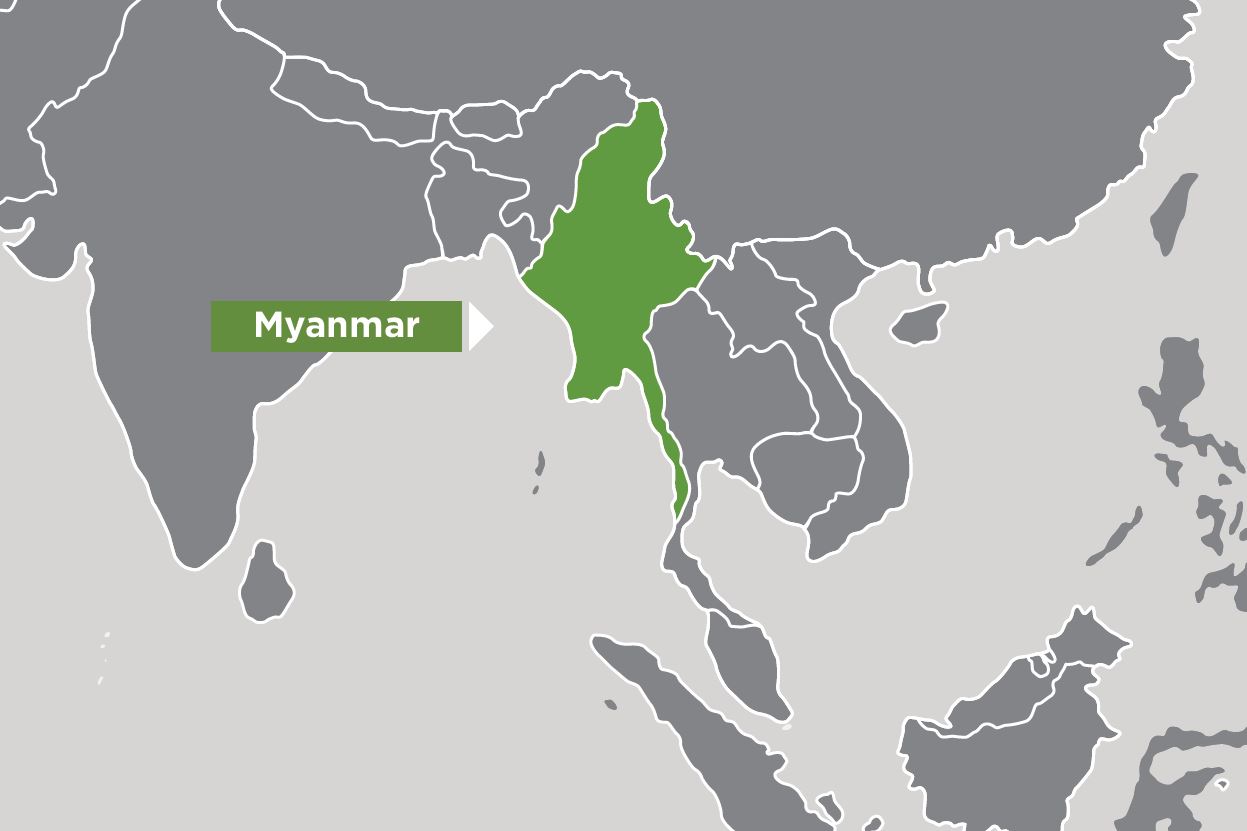Overview
This project aimed to increase the incomes and strengthen local food security of small-scale farmers and their families in central Myanmar through improved fertiliser use and associated crop management practices.
In Myanmar, rice growers have shifted from subsistence to semi-subsistence production, growing rice for household consumption and selling any surplus to boost their income.
With good prospects for increasing rice exports and profits, there is incentive to improve rice yields. The same is true for maize, a higher-value crop.
But the country grapples with widespread crop underperformance, which is linked to an inadequate supply of nutrients, particularly nitrogen (N), in the soil. Earlier projects revealed large tracts of rice in central Myanmar showing typical symptoms of yellowing associated with N deficiency.
Given the well-known benefits of fertiliser use, it may be expected that fertiliser research and utilisation would be widespread in Myanmar; however, there is surprisingly little local scientific information, and very little economic information, on efficient and cost-effective fertiliser use in central Myanmar. This project aims to address this gap.
Project outcomes
- Smallholder farmers and villagers benefiting economically through increased efficient use of N fertiliser, and improved understanding of the requirements and management options for better agronomic performance and profitability.
- Greater household income translating to improved nutrition of women and children, improved health and greater school attendance of children.
- Improved N use efficiency leading to reduced N contamination of the environment, reflected in N footprints of agricultural products.
- Greater capacity among Myanmar’s agricultural scientists and academics to sustain and promote improved management practices, contributing to improved livelihoods.






